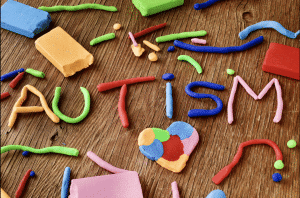
As a parent or guardian, it’s very typical to worry about your child’s development. Raising a child can be very rewarding, but this responsibility will require a lot from you. For one, you need to make sure that your child grows happy and healthy, and is free from any kind of disorder, like autism, for instance.
Autism spectrum disorder, or simply autism, is a broad range of conditions that is usually characterized by having challenges in one’s social skills and nonverbal communication, as well as repetitive behaviors. Autism is one of the most common disorders in the United States as it affects 1 in every 54 children.
When left untreated for long periods, autism can result in difficulty in forming and maintaining relationships, social isolation, and familial discord. These can adversely affect a person’s mental and physical health.
Are you wondering what are the different types of Autism? If yes, check out our guide on the key signs to look for and main things to understand.
Are you a parent, caregiver, friend, or friend of someone with autism? If so, it’s helpful to understand the different types of autism.
Having this information will make it easier for you to understand the illness and help your loved one cope with it. This is especially important if your child has been diagnosed with autism.
Aside from checking reliable websites, such as Fired Up People, below you’ll find a simple guide to the main five different types of autism.
What Are the Different Types of Autism?
 The five types of autism are…
The five types of autism are…
- Aspergers
- Rett syndrome
- Childhood Disintegrative Disorder
- Kanner’s Syndrome
- Pervasive Developmental Disorder
Below you’ll learn how a few symptoms or features are consistent with all 5 autism types.
- Disconnection from other people
- Difficulty or inability to show empathy
- Uncontrollable emotions (meltdowns, tantrums)
- Delay in language/verbal skills
Plus you’ll also learn how each type of autism has its own unique features.
The 5 main types of autism
1. Aspergers
People with Aspergers don’t usually have symptoms as severe as other types of autism.
They generally have difficulty in social situations.
- Often they seem disinterested in the people around them.
- They’re always struggling with social cues.
- They have trouble reading another person’s facial expressions or body language.
Generally, these symptoms of Aspergers can be managed.
People with Aspergers seem to have normal life spans, but they’re usually at risk of developing mental health issues, like depression, obsessive-compulsive disorders, and mood disorders. Most cases of Aspergers have been diagnosed between the ages of five and nine, but some children are diagnosed as early as three years old.
2. Rett Syndrome
Rett syndrome is a rare genetic disorder mostly affecting females.
Symptoms of Rett syndrome can be very severe:
- inability or difficulty speaking, walking, and sometimes breathing normally
- repeated hand movements
- Slowed growth as this syndrome can slow down the growth of the brain after birth
- Breathing problems
- Unusual eye movements
Rett syndrome affects growth and development in many ways. Plus, people with Rett syndrome may have anything from moderate to very severe symptoms.
People with Rett syndrome are very susceptible to developing digestive problems, seizures, and spinal curvature as they age.
3. Childhood Disintegrative Disorder
Childhood disintegrative disorder (CDD) is a rare condition, which mainly shows up with delays in development.
People with CDC may have difficulty with…
- language, social skills, and even motor skills
Researchers still aren’t sure about the causes of CDD. They think it has to do with differences in brain function and chemistry.
When diagnosed late, CDD can cause severe intellectual disability among patients, especially to children.
4. Kanner’s Syndrome
Kanner’s syndrome is also known as autistic disorder.
People with Kanner’s syndrome may…
- struggle with verbal communication
- do great with visio-spacial thinking
- have trouble with socializing with others or being around large groups of people.
- be prone to angry or aggressive outbreaks
- Lack of emotional contact with other people
- Abnormality or muteness of speech
- Major learning difficulties
This article from Autism Parenting Magazine can help you understand more about handling meltdowns, tantrums, and aggression.
5. Pervasive Developmental Disorder
Pervasive Developmental Disorder (PDD) is often noticed at a young age.
People with PDD usually have these symptoms:
- They have trouble understanding language and communicating.
- Or they struggle with new environments or activities outside of their routine.
- They have repeated behaviors or physical movements.
- Difficulty with transitions
- Deficits in both verbal and nonverbal communication
- Poorly developed comprehension skills
- Uneven skill development (behavioral, academic, motor, cognitive)
Being a Good Advocate
If you’re reading this article on the different types of Autism, you’re probably hoping to help someone who has been diagnosed. Good for you!
When you’re informed, you can better support a person with Autism. You’ll find caring for someone with autism feels stressful at times. But you must do your best to show patience. Your effort matters!
Journaling is A Great Stress Relief
If you want to live a rich, full, happy life, you need to take time for regular tough love chats with your heart. This line-a-day journal will help you to do just!
Think happier. Think calmer.
Think about subscribing for free weekly tools here.
No SPAM, ever! Read the Privacy Policy for more information.
One last step!
Please go to your inbox and click the confirmation link we just emailed you so you can start to get your free weekly NotSalmon Happiness Tools! Plus, you’ll immediately receive a chunklette of Karen’s bestselling Bounce Back Book!




 The five types of autism are…
The five types of autism are…